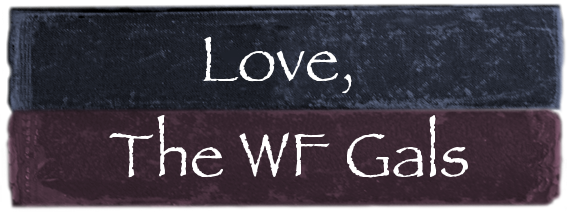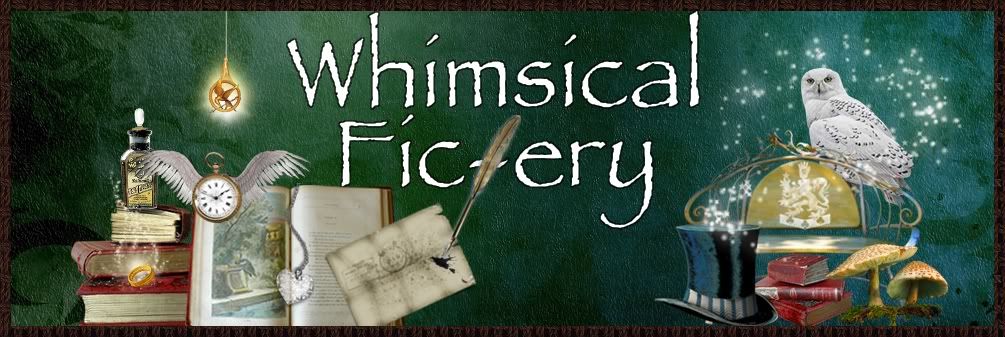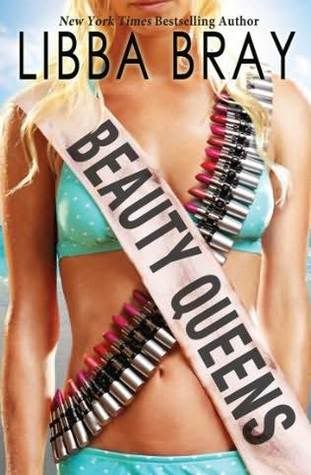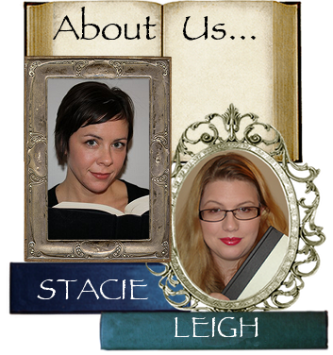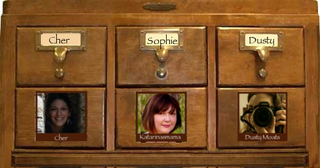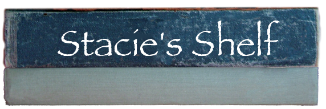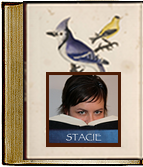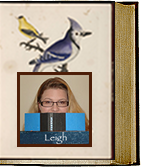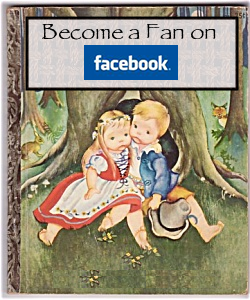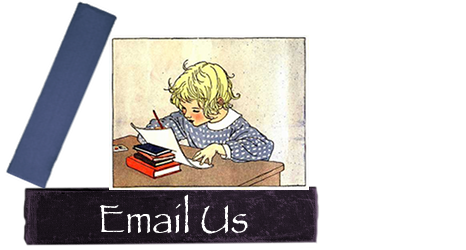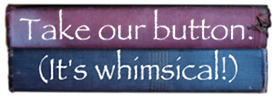 It is FINALLY time to discuss our latest LBC, Paper Towns! Contemporary fiction was actually a little departure for me, as I tend to surround myself by misty-fairy-unicorn-alien-beings (actual term *grin*) but I loved it, as Stacie said I would, and I hope you guys did too! (And, since this is a book club, of sorts, this post will contain **SPOILERS**! If you haven't read the book, don't read this post!)
It is FINALLY time to discuss our latest LBC, Paper Towns! Contemporary fiction was actually a little departure for me, as I tend to surround myself by misty-fairy-unicorn-alien-beings (actual term *grin*) but I loved it, as Stacie said I would, and I hope you guys did too! (And, since this is a book club, of sorts, this post will contain **SPOILERS**! If you haven't read the book, don't read this post!) Our dear reader Picksee commented that, “this is one of the smartest and thought-provoking YA book I’ve ever read!” I have to agree with her. I also want to add that it is one of the funniest books I’ve ever read. Radar’s character alone made this book worth reading. The confederate flag tee shirt made me laugh so hard, I woke my husband up from a dead sleep. And the idea of the World’s Largest Collection of Black Santas is one of the best things ever. And, seriously, I’ve searched for Black Santas - they are not easy to find. I really wanted a black Santa for my son (who dresses like Santa in the summertime - obsessed), but perhaps someone is out there hoarding all of the Black Santas...
Our dear reader Picksee commented that, “this is one of the smartest and thought-provoking YA book I’ve ever read!” I have to agree with her. I also want to add that it is one of the funniest books I’ve ever read. Radar’s character alone made this book worth reading. The confederate flag tee shirt made me laugh so hard, I woke my husband up from a dead sleep. And the idea of the World’s Largest Collection of Black Santas is one of the best things ever. And, seriously, I’ve searched for Black Santas - they are not easy to find. I really wanted a black Santa for my son (who dresses like Santa in the summertime - obsessed), but perhaps someone is out there hoarding all of the Black Santas...  For those of you who don't know, Stacie's son was adopted from Ethiopia. But even if he wasn't, you have to admit that the Black Santas are pretty sweet.
For those of you who don't know, Stacie's son was adopted from Ethiopia. But even if he wasn't, you have to admit that the Black Santas are pretty sweet.  Picksee also mentioned the banter in this book, and that was one of my favorite things as well. The verbal contests between Ben, Radar, and Q were so spot-on. I have to agree with Picksee again in her observation, “The language was really well written-all of the conversations and interactions felt sincere. The banter was funny and natural.” My favorite scenes are from the Road Trip, where I felt like Q was really beginning to understand himself and the quest for Margo, but at the same time, he was truly embracing the moment and the joy within.
Picksee also mentioned the banter in this book, and that was one of my favorite things as well. The verbal contests between Ben, Radar, and Q were so spot-on. I have to agree with Picksee again in her observation, “The language was really well written-all of the conversations and interactions felt sincere. The banter was funny and natural.” My favorite scenes are from the Road Trip, where I felt like Q was really beginning to understand himself and the quest for Margo, but at the same time, he was truly embracing the moment and the joy within.  I loved the whole road trip section of the book. I especially liked the interactions with Lacey. It would've been so easy to hate her on a basic, stereotypical level but she had a depth and likeability that I wasn't expecting. Like Picksee said, "I appreciated that this VERY EASILY could’ve been a typical 'popular kids are sooo much deeper than they appear and tortured by their popularity.' But then, it wasn’t. I mean, it was, but in a muli-faceted way."
I loved the whole road trip section of the book. I especially liked the interactions with Lacey. It would've been so easy to hate her on a basic, stereotypical level but she had a depth and likeability that I wasn't expecting. Like Picksee said, "I appreciated that this VERY EASILY could’ve been a typical 'popular kids are sooo much deeper than they appear and tortured by their popularity.' But then, it wasn’t. I mean, it was, but in a muli-faceted way."  I see we're moving on to the Smart and Thought-Provoking now. I’m a little scared because there is SO MUCH BRILLIANCE in this book. I know we won’t get to all of it, so please feel free to continue in the comments.
I see we're moving on to the Smart and Thought-Provoking now. I’m a little scared because there is SO MUCH BRILLIANCE in this book. I know we won’t get to all of it, so please feel free to continue in the comments.I’m going to start with the end. Because the end? It’s brilliant. I’ll admit, on my first read, I was a little crestfallen. I think this has something to do with my love of Pretty Endings with Bows on Top. But, reading it again has made me fall in love with the end. It reveals so much about both Margo and Q.
One thing that struck me that I’d like to put out there is that, in the end, Q seems so much braver to me than Margo. Yes, Margo is striking out on her own, and Q is seemingly taking the “safe” route with college, marriage, family. But Margo says something that made me question, and it is this: “...I go back to my room in the morning and I just miss you. I want to come over and hang out and talk, but I’ve already decided to leave, so I have to leave.” To me, this seems cowardly. She is almost as set in her routines as Q is in his. Maybe it’s my desperate want of the happy ending, but if she missed him, why not stay? Why not throw caution to the wind and give it a chance?
 No, I don't think you're projecting. I think you're right. I think they are just polar opposites in that way. Q is going to do what Margo fears most: stay. And I think she fears it because if you stay then you might fail. I moved a LOT as a kid, and while it was hard to make new friends, it was also much easier to never have to deal with the fallout of friendships as they grow and change. If Margo is always leaving then she never has to adjust who she is. She can swoop in, be Margo, enjoy it for a while, and then start over before anyone expects too much from her.
No, I don't think you're projecting. I think you're right. I think they are just polar opposites in that way. Q is going to do what Margo fears most: stay. And I think she fears it because if you stay then you might fail. I moved a LOT as a kid, and while it was hard to make new friends, it was also much easier to never have to deal with the fallout of friendships as they grow and change. If Margo is always leaving then she never has to adjust who she is. She can swoop in, be Margo, enjoy it for a while, and then start over before anyone expects too much from her.I'm not dissing Margo for that, though, because I understand it. I think John Green did too. He let the characters just be who they were. They had flaws, and no one made any apologies for those flaws. Maybe we got some backstory here and there that explained why someone *cough*MARGO*cough* was maladjusted, but that didn't excuse him or her form it OR doom him or her to judgement. The narration felt, in some ways, documentary-like or journalistic (in a good way.) Sort of like, "Here are real people. You make your own call."
 That is a really great way to put it. I kind of love that about John Green's writing in general. You're never expected to feel one way or another about the characters, but they just are, as you said. I think that says a lot about him trusting his audience. Or maybe that's just how he writes. Or both. He often writes characters that are deeply flawed, and even unlikable on the surface, but they end up being important to me in the end. His characters stick with me, and this is probably because they are more real.
That is a really great way to put it. I kind of love that about John Green's writing in general. You're never expected to feel one way or another about the characters, but they just are, as you said. I think that says a lot about him trusting his audience. Or maybe that's just how he writes. Or both. He often writes characters that are deeply flawed, and even unlikable on the surface, but they end up being important to me in the end. His characters stick with me, and this is probably because they are more real.And as Picksee said, she had to come around to empathizing with Margo - she didn't like her as a child, but by the end had come to understand her. I kind of felt the same way. I admired her bravado, but certainly didn't like her much until the end.
 The characters aren't perfect. It would have been really easy to make Margo this Amazing, Fabulous Person, because you want Q to succeed and to get his dream girl at the end. It would have been easy for Margo to be that Dream Girl, but that's not the point. John Green didn't do the 'easy' with rainbows and puppies. Also, it would have been easy for Q to follow her in the end, but that would have been wrong.
The characters aren't perfect. It would have been really easy to make Margo this Amazing, Fabulous Person, because you want Q to succeed and to get his dream girl at the end. It would have been easy for Margo to be that Dream Girl, but that's not the point. John Green didn't do the 'easy' with rainbows and puppies. Also, it would have been easy for Q to follow her in the end, but that would have been wrong. Exactly. I don't think this book would have haunted me the way it did if it had ended with a Pretty Bow on Top (Q following Margo, or Margo coming home with Q with a Happily Ever After). The fact that it ended the way it did, with both Q and Margo leaving with a deeper understanding of themselves, made it all the more powerful and lasting.
Exactly. I don't think this book would have haunted me the way it did if it had ended with a Pretty Bow on Top (Q following Margo, or Margo coming home with Q with a Happily Ever After). The fact that it ended the way it did, with both Q and Margo leaving with a deeper understanding of themselves, made it all the more powerful and lasting.
Well, and that's really what the book is about, isn't it? Understanding and acceptance. Understanding who you are and accepting that other people, as Radar puts it, "aren't you."
 And there is so much more to discuss - Paper Towns, Paper Girls, the string theory, the grass.... but rather than make this the longest post ever, we can continue those in the comments! We'd love to hear your thoughts!
And there is so much more to discuss - Paper Towns, Paper Girls, the string theory, the grass.... but rather than make this the longest post ever, we can continue those in the comments! We'd love to hear your thoughts!